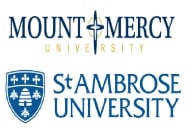You have /5 articles left.
Sign up for a free account or log in.
WASHINGTON -- To date, the role of private capital in nonprofit higher education has mostly been about desperation and opportunity -- desperation on the part of nonprofit colleges that see little or no path to survival without the infusion of outside money, and opportunity on the part of investors who, in most cases, see a shortcut to creating a different kind of postsecondary institution that would take many years to build from scratch.
Many of these institutions -- examples include Grand Canyon University, Post University and Ashford University -- have survived, albeit often in dramatically different form from their original nonprofit state. The big downside for institutional leaders is virtually all of these situations required those who ran the colleges to "toss the keys across the table and walk away," relinquishing control to others, says Michael B. Goldstein, a lawyer who heads the higher education practice at Dow Lohnes.
That model may continue to have legs in higher education if more independent colleges face financial desperation, since there seems to be no shortage of interested suitors. But at the annual meeting of the National Association of Independent Colleges and Universities here Tuesday, Goldstein urged independent college presidents to contemplate a different (and less desperate) way for them to take advantage of the burgeoning investor interest in higher education: forming joint ventures that allow them to use investor money to strengthen their financial situations, expanding or adding to their academic offerings without ceding control.
"There's an opportunity here to maintain the base of the institution while tapping into the capital that has become available in the private marketplace," he said.
Goldstein's firm helps broker such deals, including the much-publicized recent partnership between the National Labor College and the Princeton Review and its education subsidiary, Penn Foster Education Group. That arrangement has come under fire for some reasons that are specific to the labor college itself (concerns about the treatment of instructors and other employees by the college's new collaborators) and some that are likely to arise whenever traditional institutions cozy up to corporate entities -- fears that the labor college will cede control of central academic functions to its for-profit partners.
Goldstein both insists that the labor college's arrangement protects the sanctity of academic decision making and acknowledges the importance of such issues; his goal in proposing that nonprofit colleges make more use of private capital, he says, is to strengthen the institutions' financial base so that they are less likely to need to give up all control in a fire sale.
The model, as he proposes it, is for a nonprofit college to team up with an investor or other strategic partner to create an independent entity -- an online degree program, or even a separate institution entirely. The "core" academic functions -- hiring faculty, developing curriculums, admitting students, assessing students' performance, awarding credentials -- remain in the hands of the institution, while any of a collection of other services (student support, marketing, finances, etc.) can be performed by the new joint entity, which is controlled (through majority ownership) by the institution. "This enables you to pick the best of the capabilities of the various partners, so you don't have to build it or do it all yourself," Goldstein said.
In the ideal arrangement, the college owns 51 percent of the entity and therefore ultimately controls it; the two entities share revenues derived from tuition payments in proportion to their ownership stakes; the joint venture pays royalties and license fees to the college and the investing group; and both entities, including the college, benefit from the appreciating value of the joint venture over time.
In addition, the college typically receives an investment -- "several tens of millions of dollars," Goldstein says, in the case of the National Labor College -- directly from the investor for institutional support.
Goldstein acknowledged that relatively few of these arrangements had been tried so far -- in addition to the fledgling labor college arrangement, Tiffin University's 2007 deal with Altius Education to award associate degrees through its Ivy Bridge College branch was discussed at Tuesday's session. And the fact that just a handful of NAICU attendees sat in on the session suggests that stressed as they are financially, most independent college presidents either aren't ready to think along these lines.
But with other sources of revenue likely to be squeezed for some time to come, Goldstein said, institutions that see opportunities to grow but don't want to divert precious fund raising or tuition revenues toward new enterprises may grow more comfortable with the idea.









